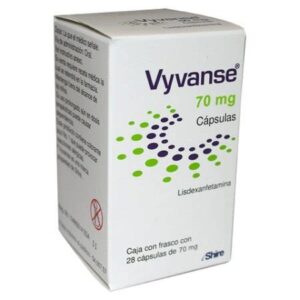Hydrocodone is an opioid pain medication that is effective in relieving pain by altering how your body responds to it. Prescribed in different strengths, Hydrocodone 10mg tablets are formulated to provide rapid relief and are an ideal choice for short-term pain management. Understanding the proper use of Hydrocodone can help you maximize its benefits while minimizing potential risks.
What is Hydrocodone 10mg?
Hydrocodone 10mg is a prescription medication that belongs to the class of drugs known as opioids. It is commonly combined with acetaminophen or ibuprofen to enhance its pain-relieving effects. Each tablet typically contains 10 milligrams of Hydrocodone, a potent active ingredient that binds to opioid receptors in the brain, effectively reducing the perception of pain.
Hydrocodone 10mg tablets are primarily prescribed to manage pain associated with various medical conditions, including:
- Post-operative pain
- Chronic pain conditions
- Acute injuries, such as fractures and sprains
The medication is available in different formulations, including immediate-release and extended-release, allowing healthcare providers to tailor pain management plans according to individual patient needs.
How Hydrocodone Works
When you take Hydrocodone 10mg, it enters your bloodstream and quickly acts on the central nervous system. By binding to specific receptors in the brain, it alters the way your brain processes pain signals and reduces discomfort levels.
In addition to its pain-relieving properties, Hydrocodone may also induce feelings of euphoria, making it effective but potentially addictive. This is why it is crucial to use this medication under strict medical supervision.
Benefits of Hydrocodone 10mg Tablets
Hydrocodone 10mg tablets offer several advantages for those in need of pain relief:
Effective Pain Management
The primary benefit of Hydrocodone 10mg is its superior effectiveness in managing moderate to severe pain. Whether you are recovering from surgery or coping with a chronic pain condition, this medication can provide significant relief, enhancing your ability to resume daily activities and improving overall life quality.
Quick Onset of Action
One of the key features of Hydrocodone 10mg tablets is their rapid onset of action. Patients often experience relief within 30-60 minutes after taking the medication. This quick response time makes Hydrocodone an ideal choice for acute pain scenarios, as it can help manage pain effectively during critical moments.
Versatility in Treatment
Hydrocodone can be prescribed for various pain types, making it a versatile option for patients dealing with different medical conditions. Its effectiveness across a broad spectrum of pain issues encourages healthcare providers to consider it as a first-line treatment option.
Combination Formulation
Hydrocodone is often combined with other non-opioid analgesics, such as acetaminophen or ibuprofen, to enhance its effectiveness and provide comprehensive pain relief. This combination allows for lower doses of opioids while maintaining adequate analgesia.
Potential Side Effects of Hydrocodone 10mg
While Hydrocodone 10mg tablets can offer significant benefits, they also come with potential side effects. Understanding these risks is essential for using this medication safely and effectively.
Common Side Effects
Many patients tolerate Hydrocodone well, but some may experience common side effects, including:
- Drowsiness: Hydrocodone can cause sedation, affecting your ability to perform tasks requiring focus, such as driving or operating machinery.
- Nausea and Vomiting: Some individuals may experience gastrointestinal distress.
- Constipation: Opioids can slow down gastrointestinal motility, leading to constipation issues. Staying hydrated and maintaining a fiber-rich diet can help combat this effect.
Serious Side Effects
In addition to common side effects, Hydrocodone has the potential for more serious reactions, such as:
- Respiratory Depression: Opioids can depress the respiratory system, leading to slowed breathing or difficulty breathing. This is particularly concerning for individuals with existing respiratory issues.
- Addiction and Dependence: Long-term use of Hydrocodone can lead to physical and psychological dependency. It is essential to follow your healthcare provider’s instructions strictly and avoid taking higher doses than prescribed.
- Allergic Reactions: Some patients may have an allergic reaction to Hydrocodone, resulting in symptoms such as rash, itching, or swelling.
Overdose Risks
Taking more than the prescribed dose of Hydrocodone can lead to an overdose, which is a medical emergency. Signs of an overdose include extreme drowsiness, slow or difficult breathing, and unresponsiveness. If you suspect an overdose, seek immediate medical attention.
Safety and Precautions
When considering the use of Hydrocodone 10mg tablets, it is essential to discuss your medical history and any potential drug interactions with your healthcare provider. Here are key safety and precautionary measures to keep in mind:
Use the Medication as Directed
Follow your healthcare provider’s instructions regarding dosage and frequency. Hydrocodone should only be taken as prescribed, and it’s essential not to share your medication with others.
Avoid Alcohol and Drugs
Combining Hydrocodone with alcohol or other depressants can increase the risk of respiratory depression and overdose. It is crucial to avoid alcohol and any other medications that may interact with opioids unless approved by your healthcare provider.
Monitor Your Response
Keep track of how the medication affects you, including any side effects you may experience. Regularly communicate with your healthcare provider to adjust the treatment plan if necessary.
Gradual Discontinuation
If you have been taking Hydrocodone for an extended period, do not abruptly stop using the medication. Instead, work with your healthcare provider on a tapering plan to slowly reduce your dosage and minimize withdrawal symptoms.





Reviews
There are no reviews yet.